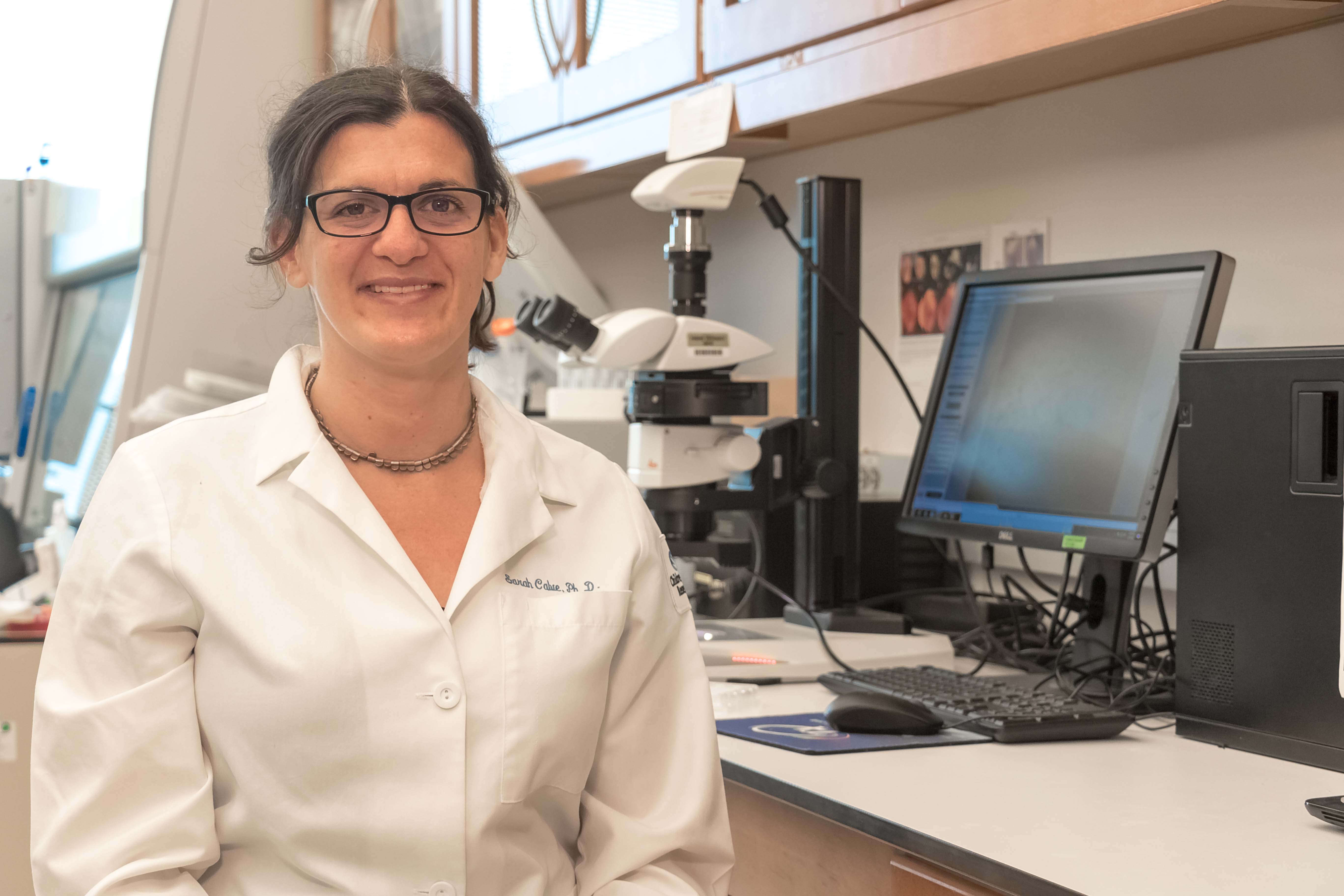Calve awarded Rising Star Award for Junior Faculty

The award is highly competitive and is a leading form of recognition of outstanding research in the field of cell and molecular bioengineering. It is awarded to faculty at the rank of assistant professor or equivalent, or less than one year from promotion to associate professor, and is selected by the CMBE, a special interest group of BMES.
The Rising Star Award was based on an abstract entitled, “Measurement of heterogeneous extracellular matrix fibril deformation in situ,” co-authored by Calve, graduate student Andrea Acuña, and Craig Goergen, an assistant professor in the Weldon School of Biomedical Engineering.
“I am honored to be recognized by the Biomedical Engineering Society CMBE community and to receive this award,” said Calve. “It’s a vote of confidence from our colleagues that we’re on the right track and that our work has promise. Andrea has done an exceptional job establishing the computational framework for our project.”
Calve is the Principal Investigator of the Musculoskeletal Extracellular Matrix Laboratory where her research is focused on studying the formation of the musculoskeletal system with applications for the regeneration of diseased or damaged tissue.
In this study, the researchers developed a novel method to measure the strain of extracellular matrix fibrils in the native conformation. Cellular behavior is greatly influenced by the biomechanical properties of the extracellular matrix. The knowledge gained from these studies will be useful for designing scaffolds that mimic the native environment and can direct cells to restore functionality to damaged tissues.
Calve gave an invited lecture about this research during the Rising Star Session at the conference.
Related links:
